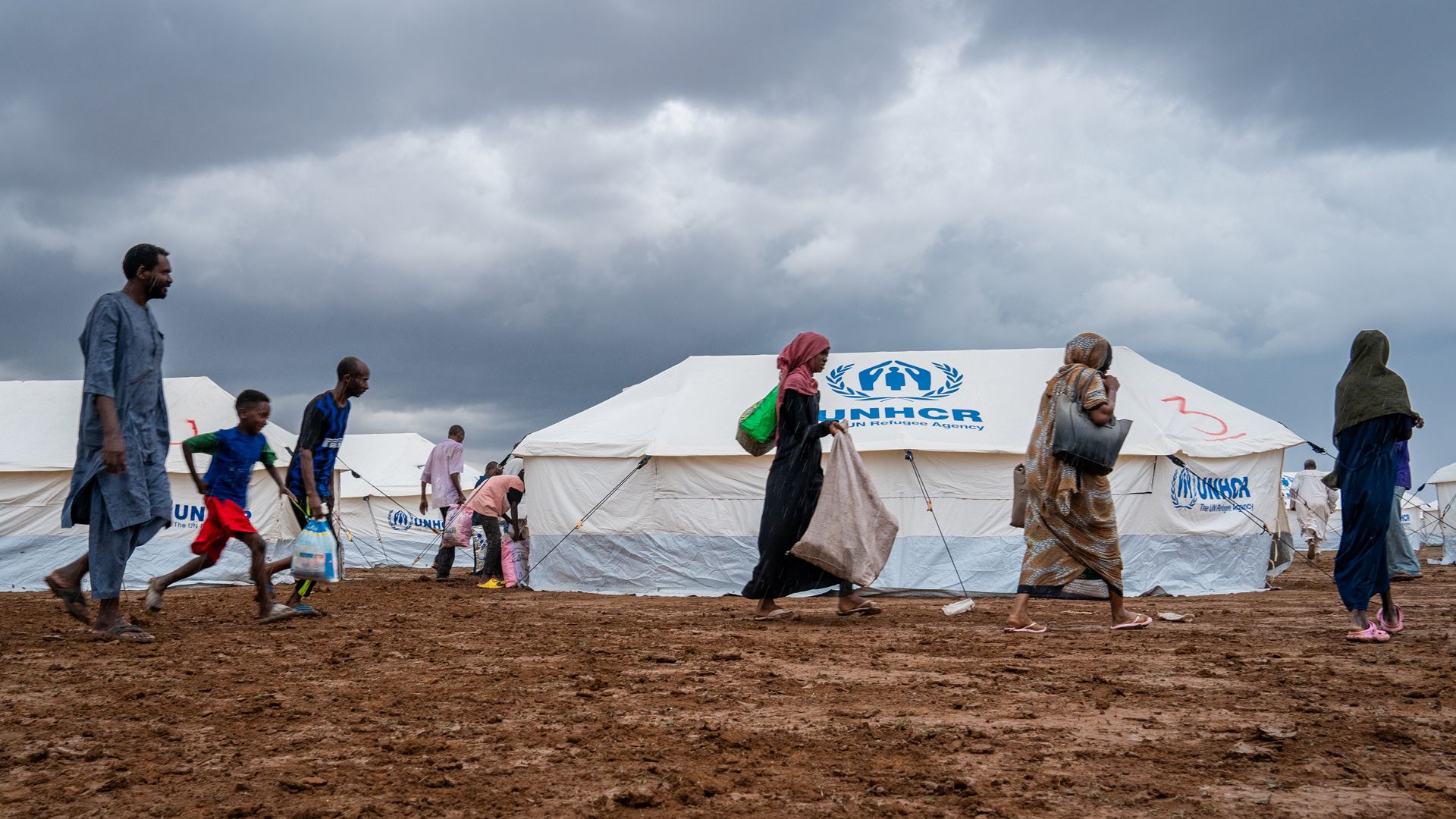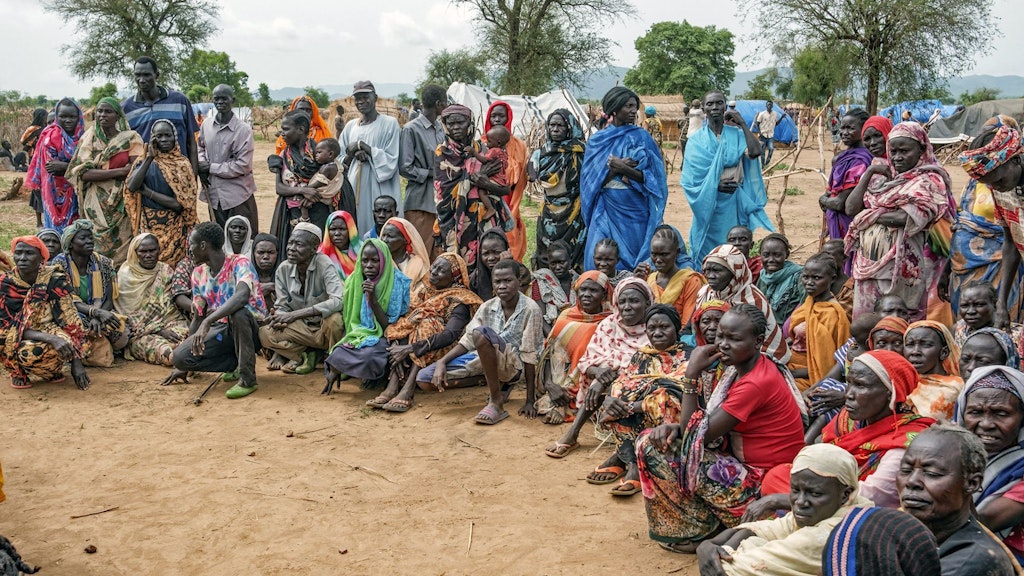Sudan
Sudan has been at war since the escalation of violence in mid-April 2023. The conflict has plunged the country into one of the worst humanitarian disasters of modern times. Switzerland supports those affected by the war in Sudan and in the region through its international cooperation, peacebuilding, and multilateral engagement.

Context Sudan
The power struggles and violence that have shaken Sudan over the course of recent decades have exacerbated poverty and left the country’s civilian populations more vulnerable. This situation is compounded by the war which has plagued the country since mid-April 2023. According to the United Nations (UN), more than half the population is at risk of famine and is in need of immediate humanitarian aid. The armed conflict has led to mass displacement, making Sudan the scene of the world’s largest displacement crisis.
Switzerland has supported humanitarian operations in Sudan since the 1990s, with a focus on emergency response and conflict resolution. The SDC’s projects are part of a broader integrated and transversal cooperation strategy (humanitarian-development-peace), which brings together the activities of the Peace and Human Rights Division (PHRD) at the Federal Department of Foreign Affairs (FDFA) and the State Secretariat for Migration (SEM). The SDC’s projects in Sudan focus on food security, civilian protection, and lasting solutions for displaced people, with the aim of responding to urgent needs and increasing resilience.
Crisis in Sudan
Through its activities in humanitarian aid, development cooperation and peacebuilding, and through its multilateral engagement, Switzerland is taking action to mitigate the impact of the war in Sudan and the region. Due to the security situation, the Swiss Embassy in Khartoum has been temporarily closed since 23 April 2023. Nevertheless, Switzerland is continuing to respond to the needs of vulnerable populations in Sudan and in neighbouring countries via its partners, in particular the International Committee of the Red Cross (ICRC), the World Food Programme (WFP), the United Nations High Commissioner for Refugees (UNHCR), the Sudan Humanitarian Fund (SHF) – organised by the United Nations Office for the Coordination of Humanitarian Affairs (OCHA) – and NGOs.
Food security and agriculture
Faced with the threat of famine due to an ongoing armed conflict, exacerbated by natural disasters, the SDC supports civilian populations by responding to their basic needs and helping boost their resilience where possible despite the armed conflict. For example, it promotes local agriculture and distributes financial resources which will be invested in the market to support the local economy and production. The SDC supports the WFP, the Food and Agriculture Organisation of the United Nations (FAO), and other international organisations and NGOs working in the distribution of food and seeds. It also supports cattle vaccination projects, as livestock farming is an important livelihood for many Sudanese families.
Emergency relief
Owing to the ongoing armed conflict in Sudan, basic infrastructure is seriously damaged, or even destroyed, and supply chains no longer function at all or are severely hindered. Besides the insecurity, humanitarian actors face numerous bureaucratic and administrative obstacles imposed by the parties to the conflict, which hamper the response. Through its partners, the SDC supports the emergency response with a view to improving basic service provision. It also provides expertise through the deployment of staff from the Swiss Humanitarian Aid Unit (SHA) to its partners.
Humanitarian access and protection
Protecting civilians in armed conflict is one of Switzerland’s priorities in Sudan. The effects of this conflict are mainly felt by civilians. Switzerland works to uphold international humanitarian law and human rights through its activities in humanitarian aid, development cooperation, peacebuilding, advocacy, humanitarian diplomacy and through its multilateral engagement. It also responds to the needs of thousands of internally displaced people, refugees, and migrants fleeing violence and fighting. Together with the SEM, the SDC works to meet their basic needs, while also providing support to host populations.
Two decades of humanitarian aid in Sudan
The SDC has provided humanitarian aid in Sudan since 1994. Before and after the peace agreements signed in 2005 between the government and the Sudan People’s Liberation Movement, efforts have focused on the south of the country and the centre, in the Nuba Mountains. From 2003, the impact of the war in Darfur became one of SDC’s priorities. The support provided to populations at the time covered both emergency relief and rehabilitation projects. In 2004 and then in 2006, two offices were opened, one in Khartoum and one in Juba, to coordinate the activities of Swiss Humanitarian Aid and of other Swiss actors. When Sudan was divided into two independent states in 2011, the SDC doubled the budget it had previously allocated to the former Sudan.

Let's Focus – #2: Sudan
The context, developments and humanitarian situation in Sudan. The FDFA explains and provides context.
Contact
Eichenweg 5
3003 Bern



